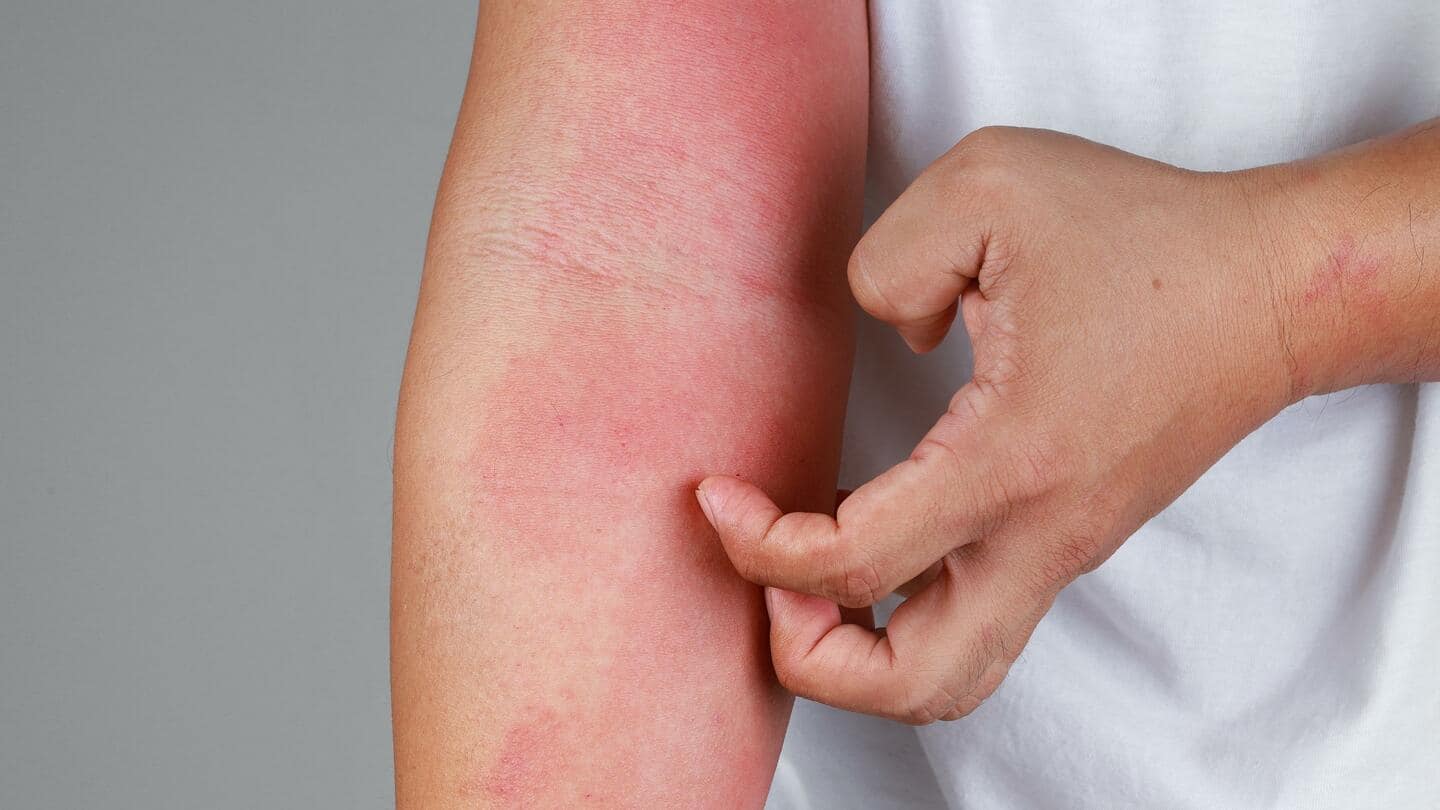
All about skin eczema: Symptoms, causes, types, and treatment
What's the story
Atopic dermatitis or eczema is a skin rash condition that causes patches on the skin which become itchy, dry, rough, and inflated. Although common among children, nearly 10% of Indian adults suffer from allergic rhinitis and eczema. Though not contagious, people with eczema are at higher risk of developing asthma, hay fever, and food allergies. Read on to know more about this skin condition.
Context
Here's what our expert says
Eczema is an umbrella term to describe inflammation of the skin. It can present with itching, rashes, blisters, and redness of the skin. It has many causes like exposure to toxins, allergens, insect bites, bacterial infection, or fungal infection. Treatment must be done after the cause has been identified. The treatment will include avoiding the causative agent, anti-inflammatory drugs, antibiotics, anti-allergics, steroids, and moisturizers.
Definition
What exactly is eczema?
Eczema is basically a type of dermatitis which is a group of conditions responsible for causing skin inflammation. It weakens your skin barrier function which is responsible for helping you retain moisture and protecting your body from pollutants. The affected areas might appear red or dark brown making the skin dry, itchy, and scaly. It usually occurs on the face, hands, and eyelids.
Causes
What causes eczema?
Eczema may be genetic; a family history of eczema or dermatitis may develop the condition. You can also have a genetic mutation that can cause your skin barrier function to stop working. It can be caused if your immune system overreacts to small irritants or allergens in the environment. Exposure to harsh soaps, rough fabric, and high levels of stress can also trigger eczema.
Types
Know about the types of eczema
1. Atopic dermatitis causes rashes in the creases of your elbows or knees. 2. Contact dermatitis is caused by a reaction to substances you have touched. 3. Dyshidrotic eczema causes blisters on the hands and feet. 4. Neurodermatitis causes thick, scaly patches on your skin. 5. Nummular eczema causes round, coin-shaped spots. 6. Seborrheic dermatitis causes itchy red patches and greasy scales.
Symptoms
What are the symptoms of skin eczema?
The most common symptoms of eczema include dry and itchy skin, skin rash, flaky, scaly, or crusty skin, bumps, thick leathery patches, and swelling. Some types of eczema can be painful and can also cause discomfort and a burning sensation. Children and teenagers often develop dry and scaly rashes in the bends of their elbows, on their necks, behind their knees, and on ankles.
Treatment
Treatment for the condition
If you have been diagnosed with eczema, start using a gentle or sensitive skin moisturizer several times daily. Take anti-inflammatory medicines, corticosteroids, and antihistamines to reduce swelling and itchiness as suggested by your dermatologist. Avoid wearing coarse or rough synthetic fabric and opt for loose cotton clothes. Stay hydrated and manage your stress and emotional triggers. Take warm showers instead of hot showers.